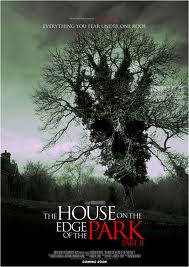This term is thrown around a lot in gambling circles, and we have mentioned it a number of times on our site itself. You may be wondering what it means, and we do get a lot of queries from people on this subject. An “edge” in this context has a similar meaning to some usages of “edge” in ordinary English language. To get an edge on someone, means to gain an advantage over them, and it means the same in the gambling context. The “house” is the casino or gambling institution that you are playing with (and essentially, playing against – either you win or they do). A house edge therefore, is the advantage maintained by the casino over the gambler. Why does the casino have an advantage? You ask. Does it always have an advantage? Surely this is not fair!
Well, if you think about it, it makes a lot of sense. Gambling is big business. And casinos need to make money. Casinos, like all big businesses are not very interested in gambling for their money – they want to be absolutely certain of making it. Therefore, in order that casinos may be profitable in the long-term, the casino, or the house, nearly always has a greater chance of winning, no matter which game – this is true for every single game offered by the casino – than the gambler. If casinos had a negative house edge, they would make a loss in the long term, and would eventually go bankrupt, meaning there would be no casinos. Well then, how does the gambler ever win, we hear you cry! Well, not every single game has the same house edge. It is a very good idea for players or gamblers to carefully examine the house edge for all games offered by a casino (and this is true of online casinos and the old fashioned real life kind) and see which of these games has the lowest house edge. In other words, the players should play the games which offer the players expected average winnings that are as close as possible to the winnings expected by the casino for that game. The house edge is determined mathematically, and is a very important part of the mathematics of gambling and something that everyone serious about making any kind of money in gambling should know and  understand.
understand.
The house edge is also known as the House Vigorish. It is very uncommon for players to become skilled enough to “beat the house” over a long period of time. Obviously, players often beat the house in the short term. Just as important to the existence and survival of casinos as the house edge, is the fact that sometimes, even often, players do beat the house. Just think about it – would you go and give your money to a casino that was never going to pay out, where you would never win? Obviously you would not. So, yes, in the short term, players often win. However, this does not matter to the casino for two reasons. Well, really it is one reason expressed in two different ways: averages. The fact remains that the house edge ensures that on average, the casino will win. This means that if you are playing the pokies and you win big, you can be sure that on average, out of everyone playing at the casino with you, on all the different games, on average, the casino is winning. At the end of every night, with some very small exceptions, the casino takes in a lot more money than it pays out. This average also works out over time. While you might win big once or twice – maybe even your first time playing you win big – the more time you spend playing, the closer your average winnings will come to the overall average, otherwise known as “expected value”, and the closer the actual house edge percentage will move towards the pre-determined house edge. This all translates as, while you might win big once or twice, or even more than that, the more you play, the more you lose – on average, overall. As we said before, it is very uncommon of a player becoming skilled enough to beat the house edge over a long period of time.
If this is all a little bit unclear, then let us give you an example.
The House Edge is always given as a percentage of a player’s original bet in any given game and is the opposite of the player’s Expected Value (Check out our page The Mathematics of Gambling: What is Expected Value for a description). So take for example, a Roulette game. A player’s expected value when betting on red is -5.26%, That means that he or she can expect to lose $5.26 of every dollar (or other unit of currency) he or she plays. This means that the House Edge is 5.26%.
Naturally, this is the theoretical average figure, and the chances of attaining that figure of loss/win in the short term is very unlikely. This figure represents the win/loss ratio that a player can expect to reach after playing over a long period of time with the same bet.
Now, the above example is just that – an example. It is true for roulette (and not necessarily for all roulette games). Every game has a different house edge and the variance is very large. Some house edges are very small – around 1%, while some are very high – up to 25% for casino games like Keno. The house edge varies on pokies games too, but generally hovers at around 10%.
Calculating the house edge can get very complicated and difficult, and requires the understanding and application of various gambling mathematical principles, such as the theory of probability, the combin function, and the notion of expected value.
Flipping the house edge.
Is it ever possible to flip the house edge? That is, turn the tables on the casino and play so that you, the gambler, has a slight advantage over the house. Well, in general, no – casinos and gambling are established with an in-built and unavoidable house edge for the reasons we discuss above. There are however, a few small exceptions to this rule. Some people suggest a system of gambling with games like roulette, where you simply double your bet every time you lose, and when eventually you win, you will win back all your lost money, and then some extra on the side. This is valid in theory, however, it requires both an unlimited (or very large) bankroll and it requires a casino with no betting limit. Casinos implement betting limits for this very reason, so it is unlikely that you will win unusual amounts unusually regularly with that system. The only two remaining options are to play and become very skilled at either poker or blackjack. There are a lot of tutorials out there for both of these. Poker is a complex and sophisticated game and getting very good can take a very long period of time. If you are interested in excelling at poker, we suggest you read a lot of tutorials and then start practising online. You will need to log thousands of hours before you can compete at a professional level and hope to mak emoney. Blackjack on the other hand, offers a little more possibility for those of us interested in making a bit of money – gaining a very slight advantage over the house – without spending years of our lives preparing and practising. It is still difficult, but you can check out two of our pages for starting out tips: What is Card Counting? And Tips for winning at blackjack.


 $7,159,773
$7,159,773
 $1,502,157
$1,502,157
 $5,288,206
$5,288,206